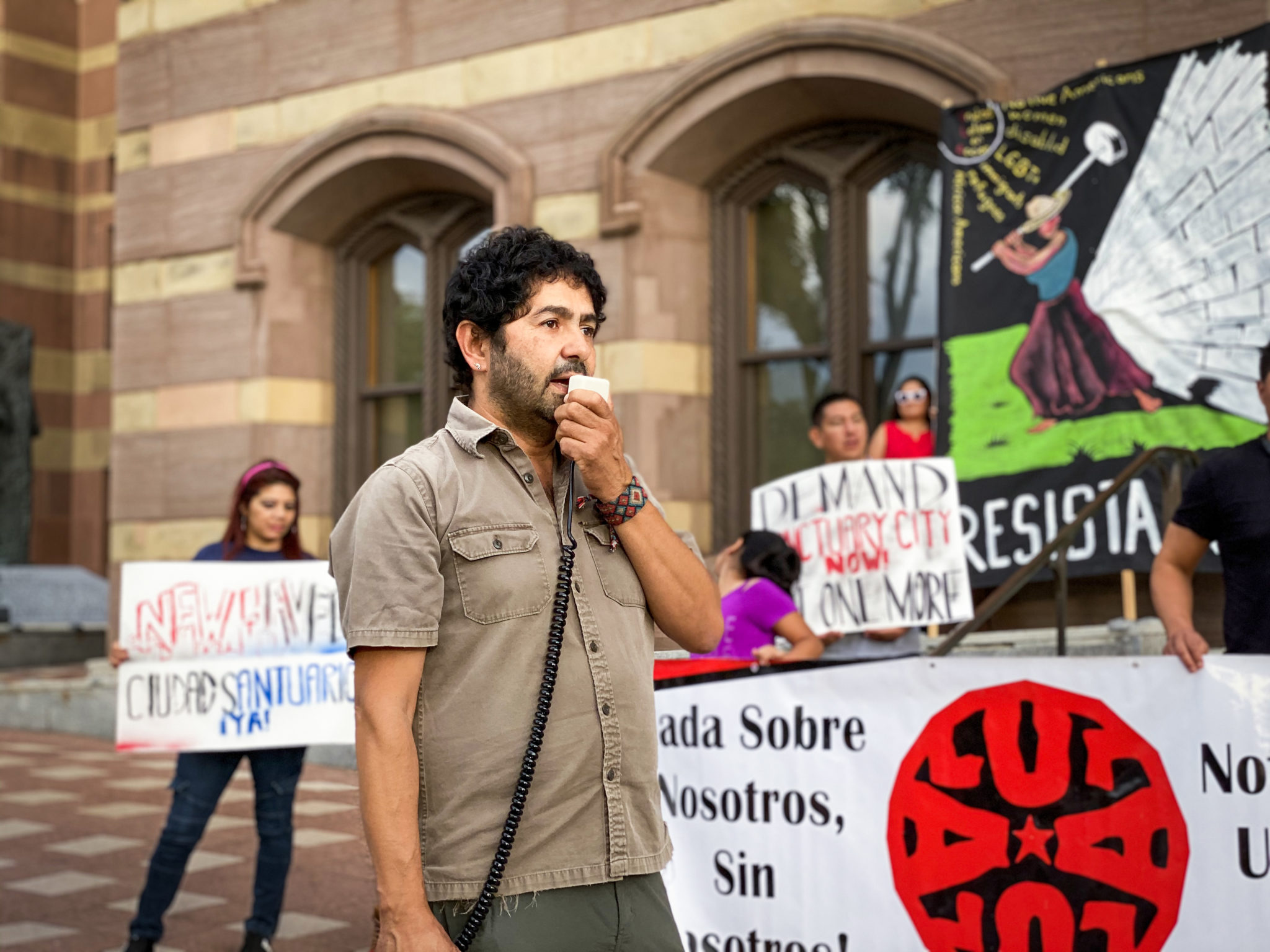
Mackenzie Hawkins
Around 50 organizers representing the immigrants’ rights group Unidad Latina en Acción (ULA) rallied on the steps of City Hall on Wednesday and demanded that the Board of Alders codify protections for Elm City immigrants with a sanctuary city ordinance.
On Aug. 14, Mayor Toni Harp issued an executive order that prohibits city employees from inquiring about a person’s immigration status unless legally required. In addition, the order includes a provision banning police officers, school resource officers and security guards from asking crime victims about citizenship. While the order strengthened existing protections in New Haven, the activists said the Board of Alders should also codify protections in municipal law.
“We live in emergency times where we need this language in place already,” ULA organizer John Lugo told the News in an interview. “The most important thing here today is also to push the [Board of Alders] to really treat this proposal as an emergency proposal because we live in very difficult times.”
The Elm City first emerged as a sanctuary police city in 2006 when it prohibited New Haven police from assisting ICE raids and asking civilians about their immigration status. In 2007, New Haven became the first city to issue government ID cards to undocumented residents.
Still, ULA has ramped up its activism in response to immigration policies from the Trump administration. Since early 2018, the organization has collected over 2,000 signatures in support of an ordinance codifying sanctuary city protections.
In interviews with the News, city officials diverged on the status of that ordinance. While city spokesman Laurence Grotheer said it is currently before the Board of Alders, Ward 27 Alder and Majority Leader Richard Furlow said no such ordinance is before the Board. Once a communication is formally submitted, it will go through the legislative process and eventually reach the full Board for a vote, Furlow explained.
Later, Grotheer clarified that his understanding “was and still is that the proposed ordinance had been submitted.” He said he plans to look into the matter further.
At the rally on Wednesday, activists criticized the process of voting on the ordinance as laborious and bureaucratic.
“No more red tape. No more dialogues. No more discussions,” Meriden City Councilor Miguel Castro told the crowd.
According to Lugo, ULA has been petitioning the mayor’s office for an executive order for two years. He added that after the order was passed, Ward 23 Alder and President Tyisha Walker-Myers suggested creating a separate body to study the potential implementation of a sanctuary city ordinance. Walker-Myers did not immediately respond to a request for comment.
Incorrect information in ULA’s original press release about immigrant rights in New Haven added to the confusion surrounding the issue. The initial release stated that the mayor had not yet passed an executive order. Grotheer pointed to this error in a statement to the News.
“Mayor Harp’s Executive Order expanding New Haven’s prohibition against official questions about immigration status was issued Aug. 14, 2019 and distributed to all city department heads that week,” he said. “So it’s difficult to understand quoted remarks or a small rally urging Mayor Harp to act on this matter after the mayor has already done so — fully seven weeks ago.”
Still, Chris Garrafa, who is an organizer for the Act Now to Stop War and End Racism (ANSWER) Coalition, noted that executive orders can be reversed, given that Justin Elicker FES ‘10 SOM ‘10 bested Harp in New Haven’s Democratic primary for mayor.
Elicker is poised to take the city’s top executive office in January. In an interview with the News, he said that he does not intend to rescind Harp’s order and expressed his support for a sanctuary law in the Elm City.
At the rally, Castro called on the Board of Alders to “fulfill their responsibilities” as elected officials and ensure that the executive order decision transitions to permanent law. Lugo echoed this sentiment, criticizing the Board for stalling on what he deems an emergency.
“[The Board of Alders] wants to keep playing politics,” Lugo said on Wednesday. “We want to tell them that we’re here, and we’re going to be coming back to this place to tell them that we need this ordinance as soon as possible.”
ULA was formed in 2002.
Mackenzie Hawkins | mackenzie.hawkins@yale.edu







